College of Human Sciences
In the uni-versity but not of the uni-versity
On 16 April 2025, Prof Nokuthula Hlabangane, of the Department of Anthropology and Archaeology in the College of Human Sciences, delivered a thought-provoking inaugural lecture entitled "In the uni-versity, but not of the uni-versity: a living, ever-spiralling quest to appear".
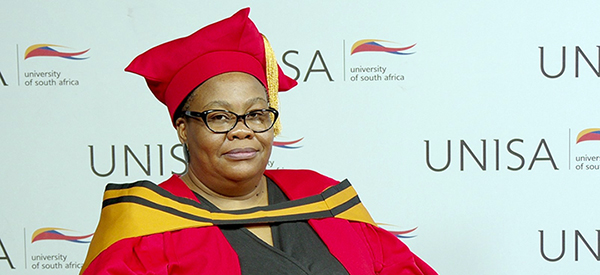
Prof Nokuthula Hlabangane
She was introduced and praised by the Executive Dean of the College, Prof Zethu Nkosi, and the lecture included a powerful response by former Unisa lecturer Dr Ndumiso Dladla, a leading decolonial scholar.
The lecture focused on the role of decoloniality in academia, asking critical questions about our history, identity, knowledge and the colonial influence of academic institutions. In her lecture, Hlabangane challenged the concept of universities as neutral spaces of learning, and instead encouraged the audience to "overstand" that universities are environments that should represent us as a people and glorify our teachings and perspectives. Drawing inspiration from African philosophers such as Prof Mogobe Ramose, Hlabangane called for a reimagining of universities as spaces rooted in epistemic justice, healing and authenticity.
I had the privilege of posing a few questions to Hlabangane, who resists the label of "academic" because it suggests a seamless fit into a system that she believes must be constantly interrogated. She said: "I posit myself as a scholar who, while in the university, is not of the university as currently configured. My journey has been one of unlearning to relearn, and of always showing up as my full, authentic self."
When I asked about balancing personal life with academic demands, she emphasised the importance of rejecting division: "How I am at home, always seeking healing and redress, is how I am at work and at play. I do not separate my life from my scholarship."
Hlabangane’s research interests focus on the pursuit of deeper overstanding of human relations, both violent and harmonious, through the lens of indigenous philosophies of the marginalised. She is deeply interested in the politics of research, a field where the goalposts can be moved at any time, especially in who conducts research, for what purpose, and with what consequences.
Hlabangane is critical of academic supervision in the established sense, which she believes implies objectification. In her words: "My role is to provoke students into self-knowledge and mutual learning. I do not 'supervise' in the traditional sense; I walk with students on a path of shared discovery. Students are not cattle to be counted. I do not measure them. Instead, I value the lifelong relationships we forge."
On the topic of choosing a career in academia, she explained that she does not see herself as a teacher in the traditional sense. Rather, she is committed to liberation education, where students are encouraged to appear in full humanity and own their intellectual voices.
"I believe in drawing out the best in students. There is no right or wrong answer; what matters is the courage to speak, to question, to appear," said Hlabangane.
When I asked about her views on higher education, she highlighted the importance of the African philosophy of go mothofatsa as explained Ramose, which is a call to nurture ethical, self-transcending, community-rooted individuals. Hlabangane also draws inspiration from the pedagogical legacy of Paulo Freire and Amilcar Cabral, advocating for a return to African sources of wisdom.
* By IHlubi Veli Mabona, Marketing Assistant, College of Human Sciences
Publish date: 2025-04-24 00:00:00.0


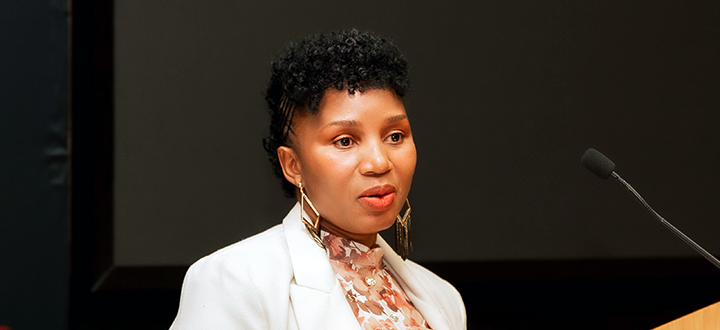 Wings of opportunity: Bringing drones into the classroom
Wings of opportunity: Bringing drones into the classroom
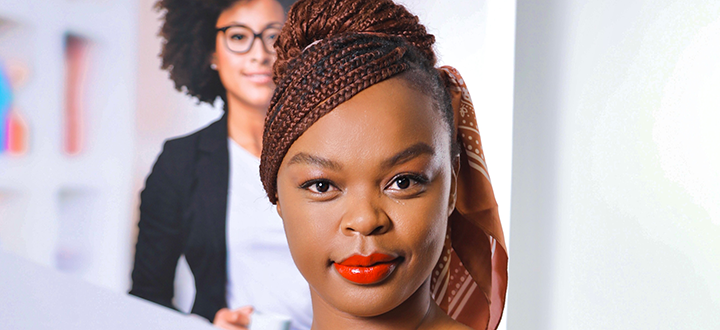 Visionary youth champion to address Unisa’s Innovation Festival
Visionary youth champion to address Unisa’s Innovation Festival
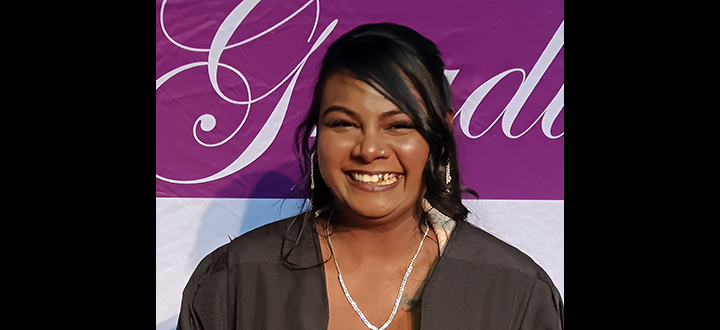 Finding the strength to persevere
Finding the strength to persevere
 Disability awareness at Unisa: Disability is not inability
Disability awareness at Unisa: Disability is not inability
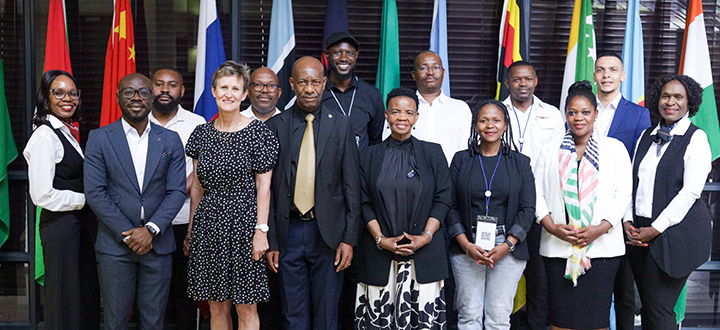 Unisa symposium shares knowledge on building SA's aviation economy
Unisa symposium shares knowledge on building SA's aviation economy